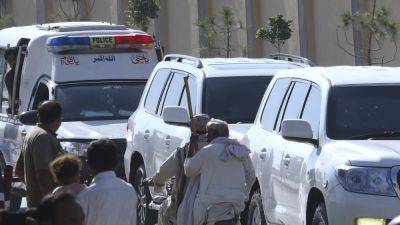Chikungunya surge in Pakistan: What we know about the mosquito-borne virus
The virus causes severe joint pain, and cases have been steadily rising in Pakistan’s port city of Karachi since May.
Hospitals in Pakistan’s largest city, Karachi, are brimming with chikungunya virus patients.
Major government hospitals throughout the city are reporting 500 to 750 suspected cases of the mosquito-borne disease every day, as noted by local media earlier this month, further straining an already struggling public health system.
But what is chikungunya, how does it spread, and why has it hit Pakistan’s most populous city so badly?
Chikungunya is a viral disease that is spread through the bite of infected Aedes aegypti mosquitos. These mosquitos also carry and spread dengue and the Zika virus.
The name, chikungunya, derives from a word in the Kimakonde language, spoken in Tanzania and Mozambique, meaning “to become contorted”.
In recent months, severe cases of chikungunya have been reported in Karachi, particularly among elderly patients and those with diabetes, according to a report from Aga Khan University Hospital.
Complications include neurological issues like paralysis and coma, as well as heart and eye problems. These severe cases often require intensive care and mechanical ventilation, with uncertain recovery prospects and a risk of prolonged hospitalisation or death.
According to government records seen by Al Jazeera, 172 people in Karachi tested positive for polymerase chain reaction (PCR) tests between May and September. Of 956 people suspected of having the virus, 713 were tested. However, the actual number of cases is likely much higher.
Many people are diagnosed without the PCR test, relying instead on matching symptoms and blood tests that show low platelet counts, which can be caused by







